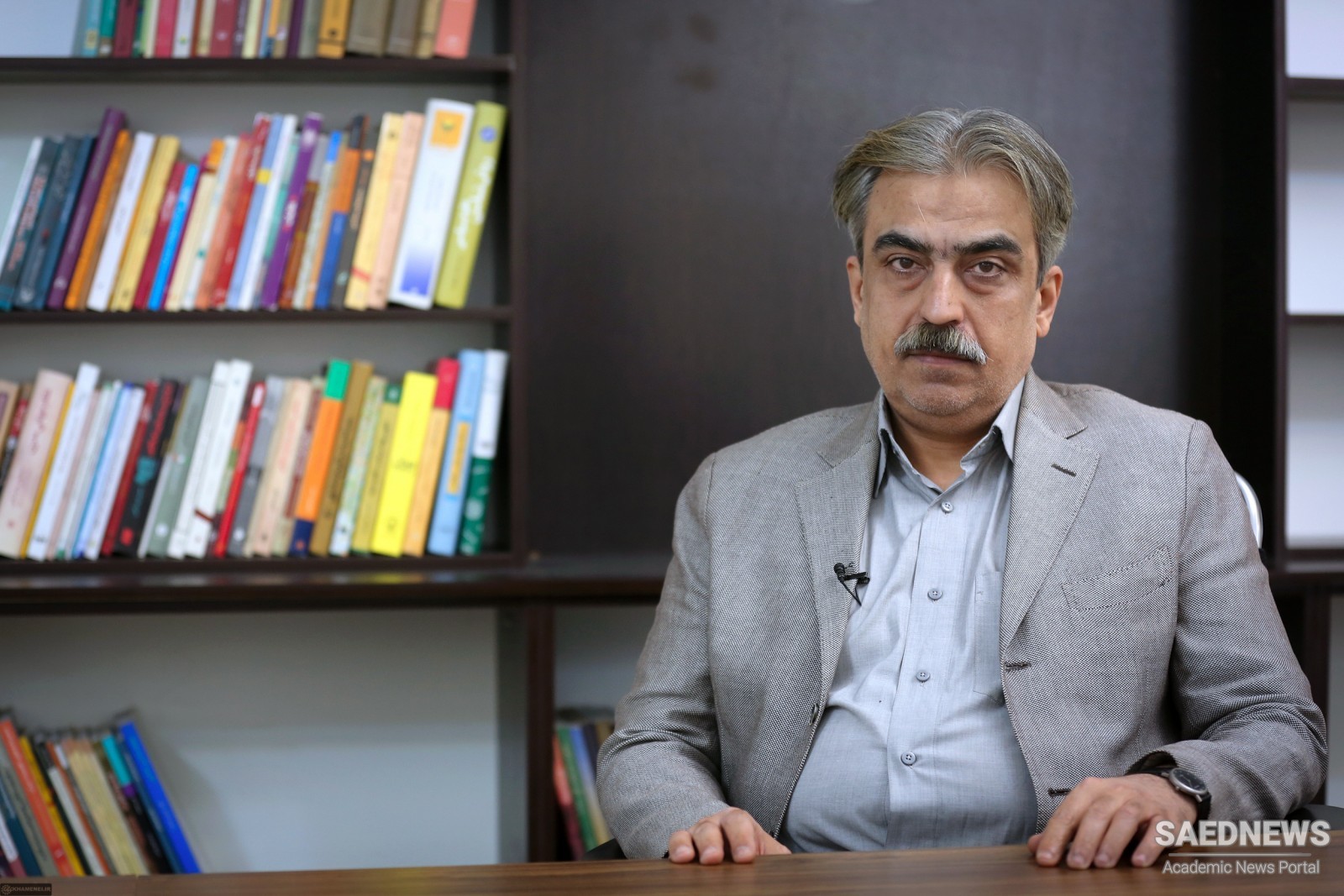Tehran, SAEDNEWS: “The US needs the nuclear deal as a first of multiple agreements considered by the Americans within their Iran containment strategy, and is desperately seeking to revive the nuclear deal, but at the lowest cost,” Seyed Mostafa Khoshcheshm said in an interview with the Persian-language Farhikhtegan newspaper that is close to the Iranian Supreme Leader's top advisor for international affairs Ali Akbar Velayati.
“The concession and cost that the US has to pay for reviving the deal is clearly the lifting of sanctions and the Americans do not want to lose this tool, because they need this main tool and the main weapon for the next agreements to force Iran to negotiate and give concessions at the negotiating table,” he added.
Khoshchesm advised the government of new President Seyed Ebrahim Rayeesi to insist on the fundamental and vital conditions long declared by Iran for reviving the nuclear deal, including removal of all sanctions, first by the Americans, followed by Iran's several-month-long verification, warning that compromise over any of these three prerequisites would deal a detrimental blow to Iran's given merits under the deal.
He further noted the Rayeesi administration's new strategy to deal with the US and defuse its containment policy against Iran and force Washington to remove the sanctions, and said, “In addition to negotiation that was extremely used as the only tool by the Rouhani administration to deal with the US pressures, the new administration needs to develop two defensive and offensive policy packages."
"The defensive set of policies are to reduce and nullify the impact of the US sanctions on Iranian economy through reinvigorating the oil and banking sectors, enhancing Iran's exports and foreign trade specially with neighboring countries, China, Russia, Latin America and Africa and strengthening national economy.
“The offensive policies are aimed at increasing pressure on the US and the three European countries by means of the nuclear, military and other leverages already available to Iran,” Khoshcheshm said.
He, meantime, underlined the ineffectiveness of the US maximum pressure policy, saying that the pressure of embargos is decreasing and time is now ripe for Iran to exert maximum pressure on the American side.
Supreme Leader of the Islamic Revolution Ayatollah Seyed Ali Khamenei said last month that experience of the nuclear deal with the western states in the past 8 years proved the West is not trustworthy, and advised the new government to take a lesson from the Rouhani administration's talks with West.
“A very important experience in this period (8-year-long presidency of Hassan Rouhani) that the future generations should use is distrust of the West,” Ayatollah Khamenei said, addressing the last meeting with former President Hassan Rouhani and his cabinet members in Tehran.
"In this government, it became clear that trust in the West does not work and they do not help, and they strike a blow wherever they can, and if they do not strike somewhere, it is because they cannot," he added.
"Domestic programs should no way be dependent on Western backup, because they will surely fail," Ayatollah Khamenei underlined.
Addressing Rouhani and members of the government, Ayatollah Khamenei said, "Wherever you made things dependent on the West and negotiations with them and the US, you were unsuccessful, and wherever you moved without trusting the West and gave up pinning hope on them, you were successful and went ahead.”
He also referred to the recent Vienna talks, and expressed satisfaction with the efforts of diplomats and the good performance of some of them in these talks.
"In these talks, the Americans stood firm on their stubborn position and did not take a single step forward," the Leader said.
"The Americans say in words and promises that they will lift sanctions, but they did not remove the sanctions and will not lift them. They even set conditions and say that you should add a sentence to the current agreement that certain issues will be discussed later, or else there won't be any agreement."
"By including this sentence, they want to provide an excuse for their future meddling with missile and regional issues through the nuclear deal, and if Iran refuses to discuss them, they will say that we have violated the agreement and there will, hence, be no agreement," Ayatollah Khamenei said.
Emphasizing that the Americans’ behavior is completely cowardly and in a malicious manner, he added, "The US has no hesitation about violating its promises and undertakings, just as they once violated the agreement completely without any cost."
"Now that the Americans are being told to guarantee that they will not violate the agreement in the future, they say that they will not give guarantees," Ayatollah Khamenei said.
The US, under former president Donald Trump, unilaterally withdrew participation in the agreement and re-imposed sanctions against Iran, which the accord had lifted.
The Trump administration subsequently launched what it touted as a campaign of “maximum pressure” against Iran, hoping to force the Islamic Republic to accept large-scale limits on its nuclear program and missile work, among other things.
The administration of US President Joe Biden has verbally renounced that policy and admitted to its failure, while expressing a willingness to return to the Iran deal. However, it has so far stopped short of taking any concrete steps to that end and retained the sanctions on the Islamic Republic (Source: FARS NEWS).


 Senior Commander Underlines Iran’s Superior Regional Position in Air Defense
Senior Commander Underlines Iran’s Superior Regional Position in Air Defense














































